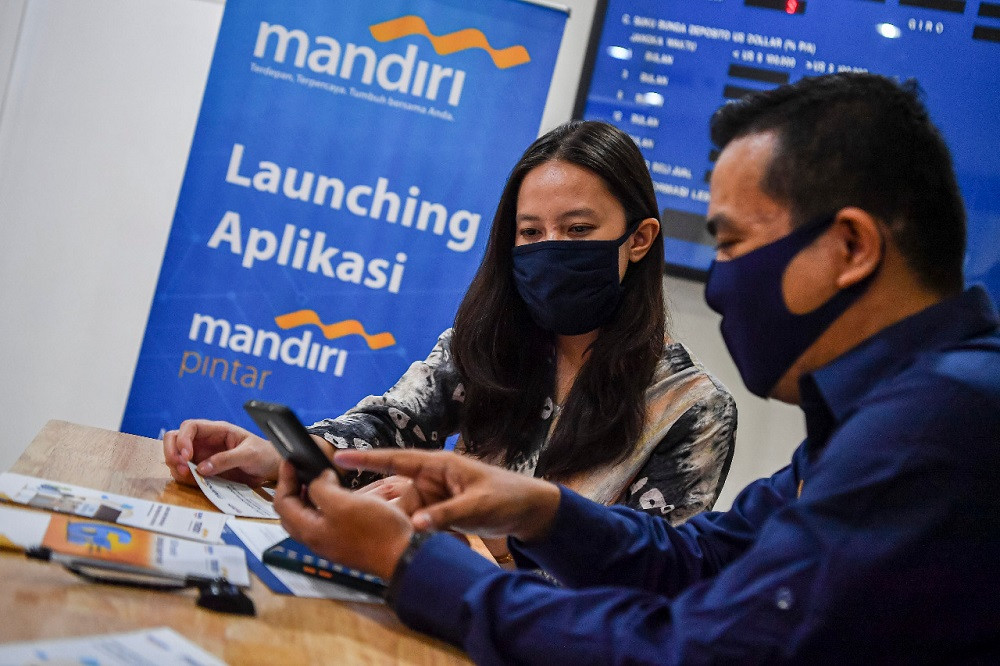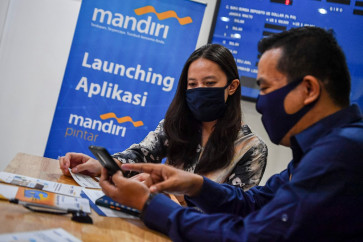Popular Reads
Top Results
Can't find what you're looking for?
View all search resultsPopular Reads
Top Results
Can't find what you're looking for?
View all search resultsBanking industry updates: Loan expansion during the gradual economic recovery
The Indonesian banking industry has gone through one of the most challenging times since the monetary crisis in 1998/1999 and it is showing a healthy and stable condition.
Change text size
Gift Premium Articles
to Anyone
T
he Indonesian banking industry has gone through one of the most challenging times since the monetary crisis in 1998/1999 and it is showing a healthy and stable condition. The capital adequacy ratio (CAR) continued to increase and liquidity remained ample, while the loan to deposit ratio remained at multi-year lows. Asset quality has been improving with nonperforming loans (NPL) relatively stable at 3.2 percent. Banks’ loans-at-risk have improved as the outstanding restructured loans impacted by the COVID-19 pandemic have decreased as some impacted debtors started to recover.
Monetary and fiscal policy have been very accommodative. The policy rate, Bank Indonesia’s (BI) seven-day reverse repo rate, is currently at a historic low of 3.5 percent. To ensure sufficient liquidity in the financial system, BI has provided as much as Rp 798.9 trillion (US$55.37 billion) in quantitative easing since the beginning of the pandemic.
BI also issued several macro prudential relaxations to support loan growth, including relaxing the regulation on down-payment to boost property and automotive sales to as low as 0 percent. These relaxations were followed by a temporary luxury tax cut policy by the Finance Ministry for property and automotive sales to boost spending of the middle-upper class. The government also continues to support micro, small and medium enterprises (MSME) through fiscal spending as part of its National Economic Recovery Program. In 2020, the government spent approximately Rp 114.8 trillion to support MSMEs, through interest subsidy, loan restructuring and loan guarantees.
However, loan demand is still very weak as the economy is showing slow recovery during the first quarter of 2021. Loans continued to contract deeper during the first quarter, by 3.8 percent year-on-year, deeper than the 2.4 percent contraction at the end of 2020. At the same time, undisbursed loans increased to their highest level in almost three years. Loans to some major industries, including wholesale and retail trades and the processing industry, which contribute approximately 33 percent to total loans, still have a stubbornly high NPL of 4.7 percent and 4.8 percent, respectively.
The Financial Services Authority (OJK) issued Regulation No.11/POJK.03/2020 related to relaxation of credit restructuring up until March 2022 with the additional requirements that banks should increase their risk management function and provide regular reports to the authorities concerning stimulus implementation. Furthermore, banks are required to conduct stress testing to assess the impact of restructuring on financial performance, capital and liquidity in particular.
Some COVID-19 impacted debtors may still fall into NPL even after they have been restructured. Banks may need to conduct a second round of restructuring to ensure the soundness of asset quality. To anticipate further increases in NPL, banks have continued to build loan loss provision to Rp 237.4 trillion as of January this year, an increase of 40 percent compared to a year before.
Economic activity is the main factor for an improvement in demand for loans. Unfortunately, economic recovery has been quite slow. Data on 2021's first quarter domestic GDP is released on Wednesday. Many expect the economy was still contracting in the last quarter because of surging daily COVID-19 infections, especially in January and February that has led to stricter rules on mobility and social distancing.


















